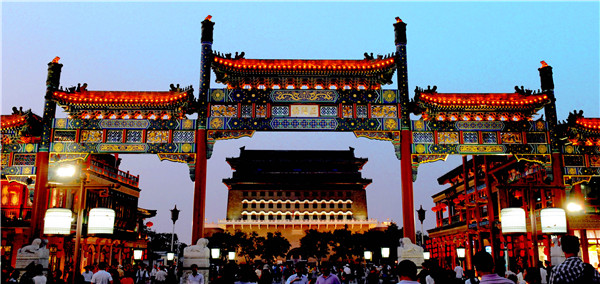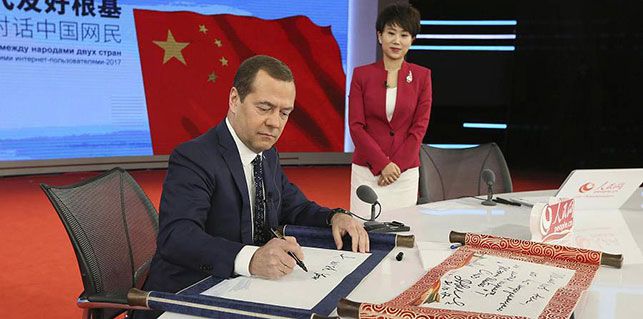Beijing's growing backbone
 |
|
A night view of Qianmen Street in 2009. [Photo/Xinhua] |
The aesthetic of symmetry is found along the zhongzhouxian. The Great Hall of the People and Beijing Zhongshan Park, or the Park of Sun Yat-sen, are on the west side, while the National Museum of China and Beijing Working People's Cultural Palace are on the east.
"Beijing has been built according to a 'checkerboard' planning system since the Yuan Dynasty," explains Wang Shiren of the city's history and culture preservation committee, "while many of the capitals of other countries have less structured layouts influenced by the Renaissance."
The Beijing Municipal government officially kicked off its campaign to have the main historical sites along the city's central north-south axis included as part of the world's cultural heritage in 2011.
Wang says the zhongzhouxian used to have 42 historical sites, and 36 of them have been preserved or rebuilt, including Beijing Zhongshan Park, which used to be the imperial altar of land and grain, built in 1425, and the Beijing Working People's Cultural Palace, which was the royal ancestral temple before the founding of the People's Republic of China in 1949.
Meanwhile, there has been criticism that some of the preservation has seen excessive renovation, such as Yongdingmen Tower. The original south end of the zhongzhouxian was rebuilt in 2004.


















